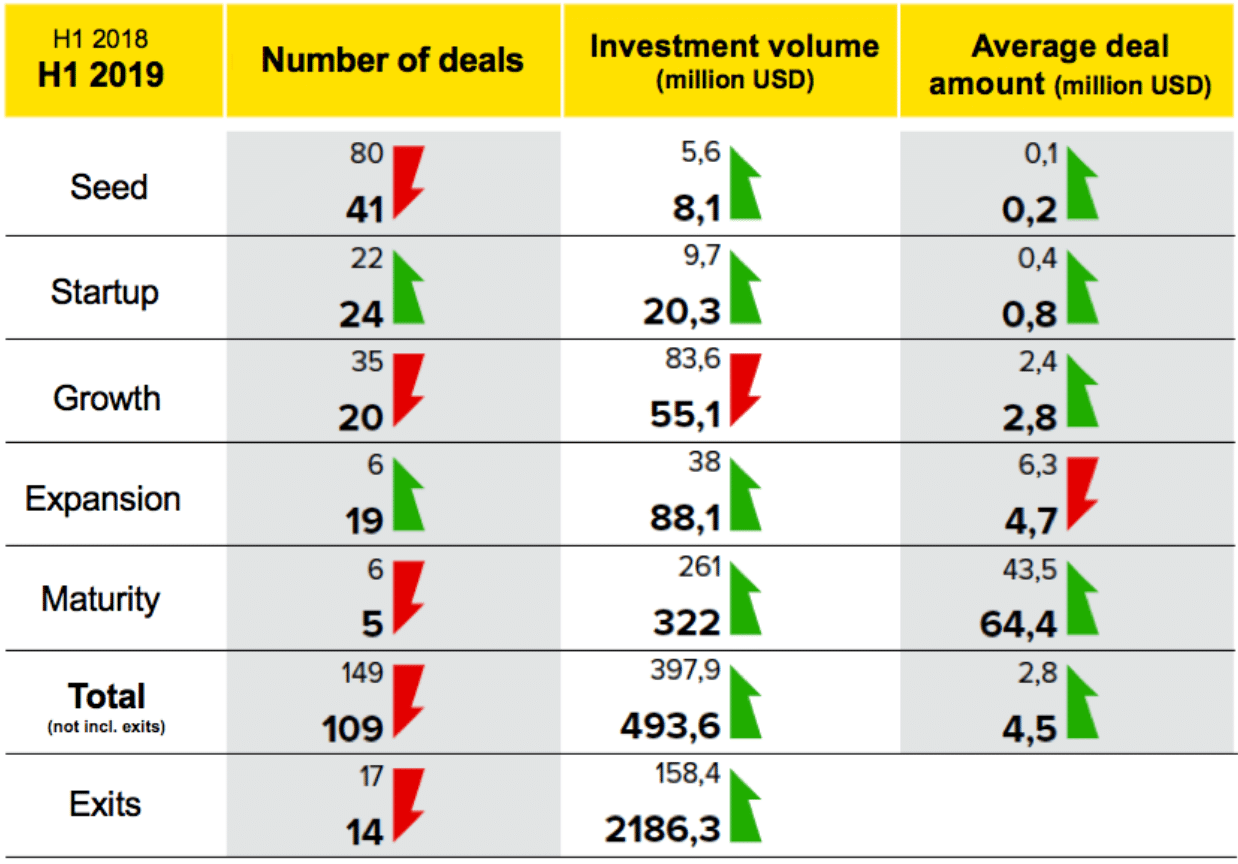Crunchbase and East-West Digital News are teaming up to cover key tech and venture trends from Russia and other countries of the former Soviet Union. This monthly column by EWDN chief editor Adrien Henni highlights the most notable industry facts and trends from Eastern Europe and Central Asia, as well as promising tech innovations. Below is the review for September 2019.
Deal of the month: BlaBlaCar to acquire Busfor
The French unicorn BlaBlaCar made the news last month with the planned acquisition of bus ticketing platform Busfor. Previously known as Gillbus, Busfor is headquartered in Poland. It also operates in Russia, Belarus, Ukraine, and a range of EU countries from Bulgaria to Italy. In addition, Busfor has expanded to Thailand and other emerging countries.
Since its inception in Ukraine in 2010, Busfor has received financial support from a variety of local and international funds. These include Intel Capital and Vostok New Ventures; Russia’s Baring Vostok, Elbrus Capital, FinSight and InVenture Partners; and Ukraine’s Chernovetskyi Investment Group (CIG). VNV’s latest capital injection last year valued the company at $69.95 million.
BlaBlaCar entered the Russian and Ukrainian markets in 2014 through the acquisition of Ukrainian site Podorozhniki. Activity in Russia quickly reached a phenomenal level – to such an extent that BlaBlaCar, in addition to becoming market leader in Russia, saw this country become its largest market, even before France. BlaBlaCar asserted its leadership even more strongly last year with the acquisition of BeepCar, a competing carpooling service run by Mail.Ru Group.
The deal with Busfor is still subject to regulatory approval.
Young ecosystems, small deals
Only a few notable deals took place in the region last month:
- Geosplit, a Russian oilfield tech startup, secured $5 million from domestic investors Rusnano Sistema SICAR and UCP;
- The Russian-founded startup Legionfarm raised $1.5 million – from TMT Investments and Russian business angel Denis Smetnev – to develop its coaching and hiring service offer for online games;
- TMT also led a round of a similar amount for RetargetApp, a Ukrainian adtech startup operating internationally;
- Belarusian sport tech startup RocketBody received $1 million from Altair Capital and Gagarin Capital;
- International game development solution provider Applovin invested an undisclosed amount in the Belarusian game development agency Belka Games.
Meanwhile Nommi, a startup that sells 4G hotspots globally, made the news in Kazakhstan. It raised $300,000 from local businessman Murat Abdrakhmanov – a small, but substantial amount by local standards.
The outcome of a startup contest held at the Eurasian Week, a major business event in Bishkek, Kyrgyzstan, also illustrated the embryonic state of the local venture market. No fewer than 150 startups from five countries took part in the competition. However, only local VCs attended it, and no deals involving the startups were announced.
“This is yet another sign of lack of maturity of the regional startup ecosystem, even though some startups would really deserve more attention from investors,” commented Vladimir Popov, head of the startup incubator of Kazakhstani IT university KBTU.
Venture stimulus
In Russia, by far the largest market of the region, venture activity enjoys strong support from the government. September was marked by three international initiatives:
- RVC, the Russian state-owned fund of funds dedicated to innovation, teamed up with Japanese corporation Mizuho to launch a medtech fund;
- The Russian sovereign fund RDIF and the authorities of the Moscow region agreed with Japanese corporations Marubeni and AEON Infrastructure to realize joint investment projects – including a Russian-Japanese technology center near Moscow requiring an investment of “at least $760 million;”
- Veb Ventures (formerly VEB Innovations), a venture fund backed by state development agency VEB.RF (Vnesheconombank), announced the creation of a Russian-Korean investment fund jointly with Korean Daedeok Ventures Partners.
Venture repellent
Meanwhile, new developments in the Calvey affair reminded how hazardous for international investors Russian business can be.
US citizen Michael Calvey, French citizen Philippe Delpal and their Russian colleagues of the Baring Vostok executive team were arrested in February 2019. While their arrest and initial placement in pre-trial detention shocked the business community in Russia and beyond, the involvement of Artem Avetisyan, the plaintiff in the case, in an array of government-related organizations raised questions about the intentions of the Russian authorities at the highest level.
In mid-September, it appeared that the charges against Baring Vostok executives could fall apart – damaging a little more the image of Russia’s legal system. Investigators re-appraised the value of shares of a bank which was central to the case. These shares were handed over by Baring Vostok to Vostochny Bank as part of a loan repayment; and their value was, in reality, many times higher than the amount alleged by the plaintiff in the case.
One of the most established Russian PE firms, Baring Vostok invested in some of Russia’s best tech companies – including Avito, ivi.ru, Yandex, and 1C.
This repelling environment partly explains why local venture activity is far from matching Russia’s considerable technological potential. In H1 2019, this activity reached at most $494 million, according to research agency Dsight.ru ($248 million according to PwC and RVC, based on another methodology).
The Russian venture market in H1 2019


Source: Dsight.ru
Another research released in September revealed that Russia’s oil and gas majors generated last year around 50 times as much in revenue as top tech companies. Thus, Gazprom made $131 billion. In contrast, the revenue of National Computer Corporation, Lanit and Yandex were comprised between $2 billion and $3 billion each.
Previous reviews:




